-
Overactive Bladder – It’s Time to Get Help!
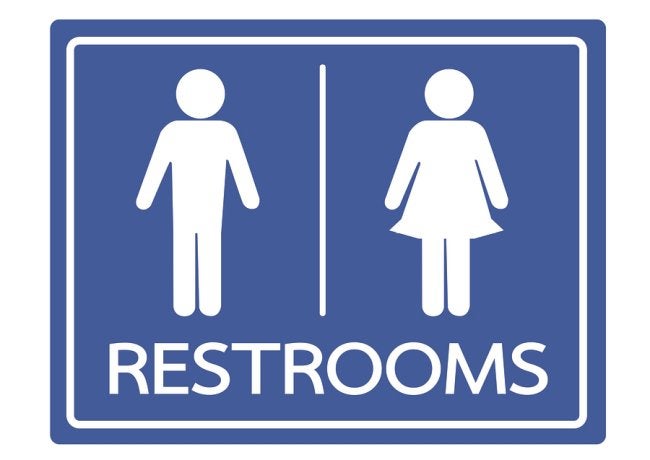
Did you know that 1 out of 3 adults suffer from overactive bladder? Overactive bladder (OAB) is a problem with the bladder-storage function that causes a sudden urge to urinate. The urge may be difficult to stop, and overactive bladder could lead to the involuntary loss of urine (incontinence). Various symptoms can be related to OAB: pelvic or bladder pain, burning during urination, blood in urine, a feeling of incomplete bladder emptying, hesitancy, dribbling, straining or the inability to urinate. The medical professionals at Urology Associates, P.C. work together as a team to help you manage your OAB symptoms, and are eager to help you.
At Urology Associates, P.C., you will be assigned your very own Nurse Navigator to help you understand your diagnosis, coordinate communication between you and your urologist, facilitate treatments in a timely manner, and help guide you through the next steps towards significant improvement in your OAB symptoms, and ultimately your quality of life.
Urology Associates, P.C. welcomes inquiries from new and current patients. If you would like to learn more about our treatments, call (888) 329-7700 to reach our clinic for urology in Tennessee.
-
Weather Update!
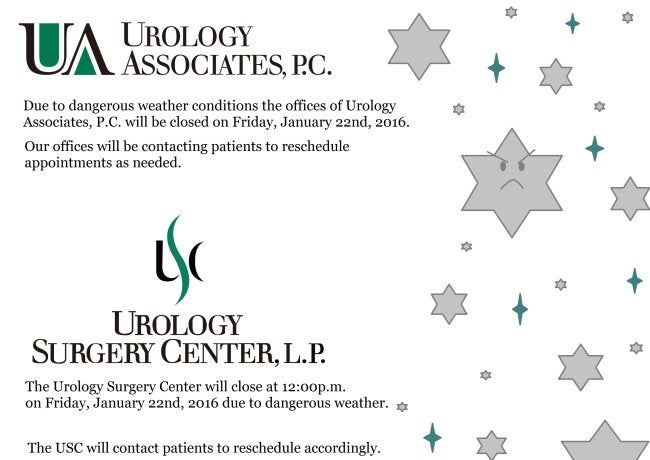
-
Weather Update
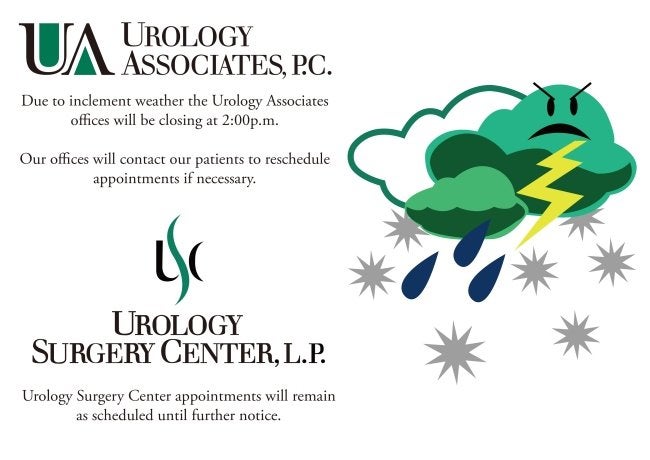
-
Employment Opportunities at Urology Associates!
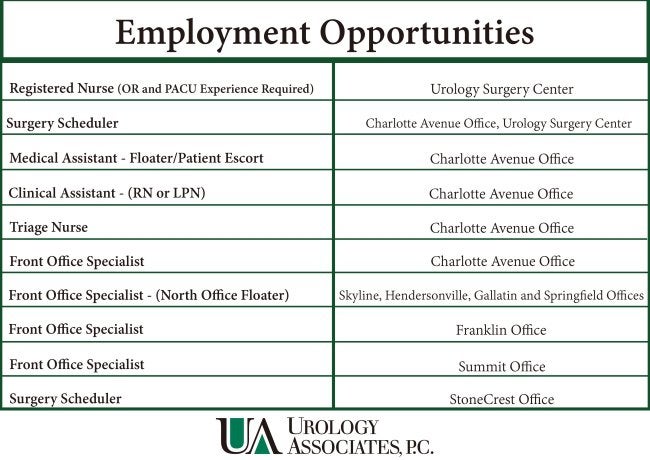
-
Interstitial Cystitis 101
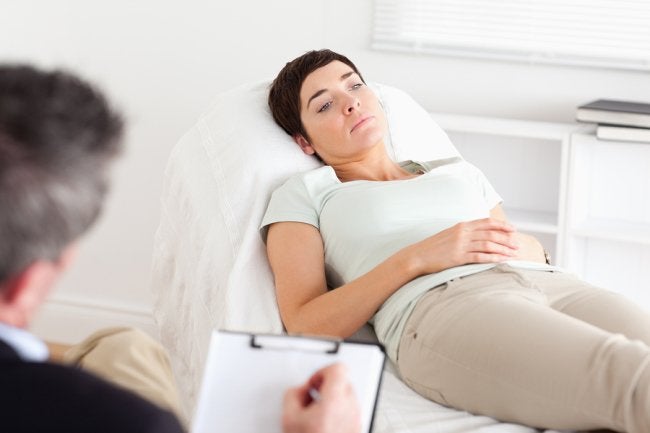
Interstitial cystitis (IC) is a condition that affects the bladder. Women are most often diagnosed with IC, and there are currently two recognized subtypes of this condition. The majority of IC cases are non-ulcerative IC, which involves very small hemorrhages of the bladder wall. Ulcerative IC is characterized by patches of bleeding on the bladder wall. IC is a complex condition that can significantly decrease quality of life. However, patients can consult a specialist in urology to explore their treatment options.
Symptoms
The symptoms of IC can vary widely from patient to patient. For any particular patient, the symptoms can evolve over time and may develop in sudden flare-ups. Certain factors can trigger a flare-up of symptoms, such as menstruation, sexual activity, stress, and exercise. These symptoms may include chronic pelvic pain, pain between the vagina and anus, pain during sexual intercourse, and pain when the bladder becomes full. Other possible signs of IC include the urgent need to urinate and frequent urination in small amounts. It’s not uncommon for a patient with IC to urinate dozens of times per day.
Causes
Specialists in urology haven’t yet been able to determine exactly what causes IC. However, it’s thought that it may be linked to a problem with the epithelium of the bladder. If the epithelium leaks, the toxins can irritate the wall of the bladder.
Treatments
Finding the right treatment for any particular patient with IC can be difficult. What works well for one patient may be ineffective for another. Urology specialists may try combinations of treatments, including oral medications such as antihistamines, nonsteroidal anti-inflammatory drugs (NSAIDs), tricyclic antidepressants, and pentosan polysulfate. Bladder distension, nerve stimulation techniques, or the insertion of medications directly into the bladder are other treatment options for IC .
At Urology Associates, P.C., our urologists have the in-depth knowledge and extensive experience necessary to provide effective, comprehensive treatment plans for patients with interstitial cystitis. For help with IC, UTIs, kidney stones, or other urologic conditions in Tennessee, call (888) 329-7700. New and current patients can browse our website to read more about common urologic conditions and their treatment.
-
Inclement Weather Alert for January 20th, 2016.

-
What You Should Know about Kidney Stones
Kidney stones develop over time from accumulations of hardened minerals. If you experience symptoms such as severe pain in the lower back, bloody urine, nausea, and vomiting, it’s time to see a specialist in urology to be evaluated for possible kidney stones.
You can hear more about this common urology condition by watching this interview with Dr. Howard Aubert, a urologist in Nashville at Urology Associates, P.C. Dr. Aubert explains one of the non-invasive treatment options available for kidney stone patients, which involves sending high-energy sound waves through the body to break up the kidney stone without injuring other tissues.
You can rely on Urology Associates, P.C. for superior patient care and sophisticated treatment options for kidney stones, kidney cancer, erectile dysfunction, and more. Call (888) 329-7700 today to schedule a consultation with Dr. Aubert or one of our other providers.
-
A Look at Pelvic Pain in Men
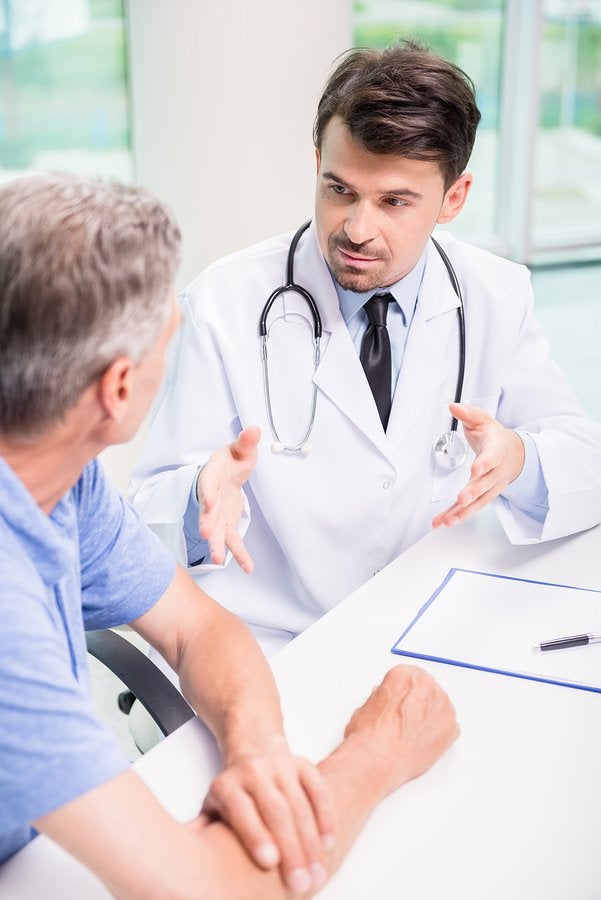
Pelvic pain commonly occurs in women; however, it may also affect men. Male pelvic pain typically involves prostatitis, which refers to the inflammation or infection of the prostate gland. This common urological health condition can be troublesome; however, it is not usually associated with prostate cancer and there are treatment options available. Men who suffer from pelvic pain can request a referral to a local urologist to discuss their options.
Additional Symptoms
In addition to pelvic pain, prostatitis can cause symptoms such as painful urination, difficult urination, and frequent urination. Men may feel the urgent need to urinate and they may experience pain of the penis or testicles. The pelvic pain may be accompanied by pain in the abdomen, lower back, and perineum. When prostatitis is caused by a bacterial infection, men may suffer from flu-like symptoms. Painful orgasms can also occur.
Possible Causes
Bacterial prostatitis can develop when bacteria present in the urine get into the prostate . Other possible causes of prostatitis include nervous system disorders, immune system disorders, and physical trauma to the pelvic area. Sometimes, it is difficult for the urologist to determine what may have caused prostatitis. Some possible risk factors include engaging in rectal sex, having benign prostatic hyperplasia (BPH) or an enlarged prostate, and having recently used a urinary catheter. Men who are diabetic, those with a suppressed immune system, and those with congenital urinary tract abnormalities are at an increased risk of prostatitis, as are those who have previously been diagnosed with this condition.
Potential Treatment Options
If your urologist determines that the patient has bacterial prostatitis, he or she can prescribe oral antibiotics to treat the problem. Sometimes, men may need intravenous antibiotics and a stay in the hospital. Otherwise, men may find relief of symptoms with anti-inflammatory drugs, pain medications, and lifestyle changes.
Urology Associates, P.C. provides compassionate care for men and women with urology health problems. Men who are experiencing a condition that affects the prostate can give us a call at (888) 329-7700 to schedule an appointment with one of our urologists in Tennessee. Our clinic also provides effective treatment options for urologic cancers and erectile dysfunction.
Recent Posts
categories
- Uncategorized
- Bladder Cancer
- Women's Sexual Health
- MonaLisa Touch
- Urology
- Urologist
- Erectile Dysfunction
- Kidney Cancer
- Incontinence
- Prostate
- MonaLisa Touch Laser Treatment
- Kidney Stones
- Urinary Tract Infections
- Event
- Sexual Dysfunction
- Testicular Cancer
- Prostate Cancer
- Urology Surgery Center
- urinary incontinence
- vaginismus
- noncoital pain disorder
- Hypoactive Sexual Desire Disorder
- Infographic
- provenge
- Xofigo
- robotic surgery
- hormone replacement
- diabetes
- renal cell carcinoma
- pelvic pain
- hematuria
- sexual health
- chronic testicular pain
- premature ejaculation
- Men's Health Clinic
- Dr. Melvin Seard
- Interstitial Cystitis
- vasectomy
- overactive bladder
- vaginal atrophy
- nocturia
- bladder infections
- urethral strictures
- Acute Epididymitis
- low sex drive
- circumcision
- pelvic floor dysfunction
- Peyronie's Disease
- prostatitis
- female sexual dysfunction
- varicocele
- difficult urination
- low libido
- PSA levels
- male fertility
- penile prosthesis
- prostatic intraepithelial neoplasia
- male infertility
- estrogen levels
- nurse navigator
- stress urinary incontinence
- vaginal yeast infection
- elevated psa
- painful sex
- adult circumcision
- epididymitis
- OAB
- kidney infection
- penile cancer
- pelvic organ prolapse
- Vasectomy Reversal
- bone health
- cystectomies
- clinical trials
- bloody urine
- Advanced Therapeutic Center
- WISH MedSpa
- neurogenic bladder
- WISH Team
- prostate biopsies
- BPH
- fecal incontinence
- lithotripsy
- osteoporosis
- kidney cysts
